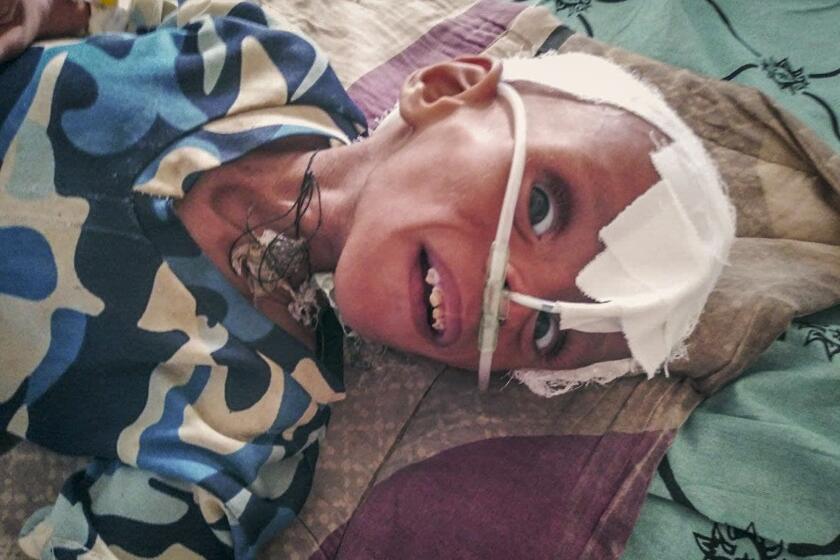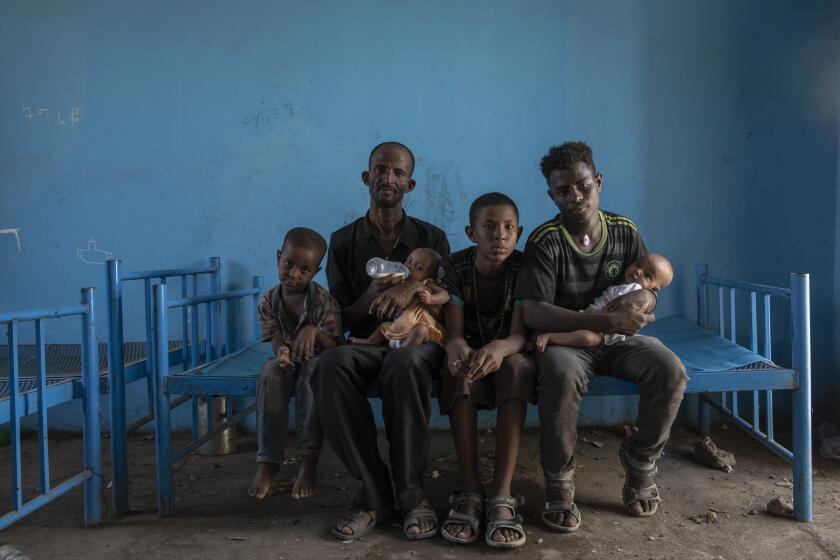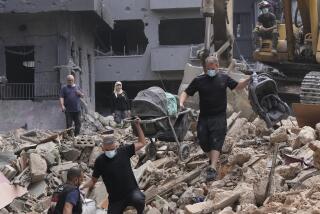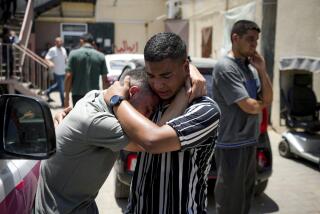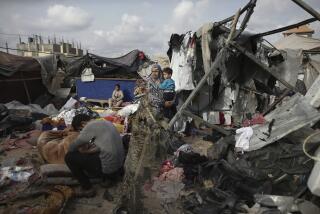New airstrikes hit capital of Ethiopia’s Tigray region
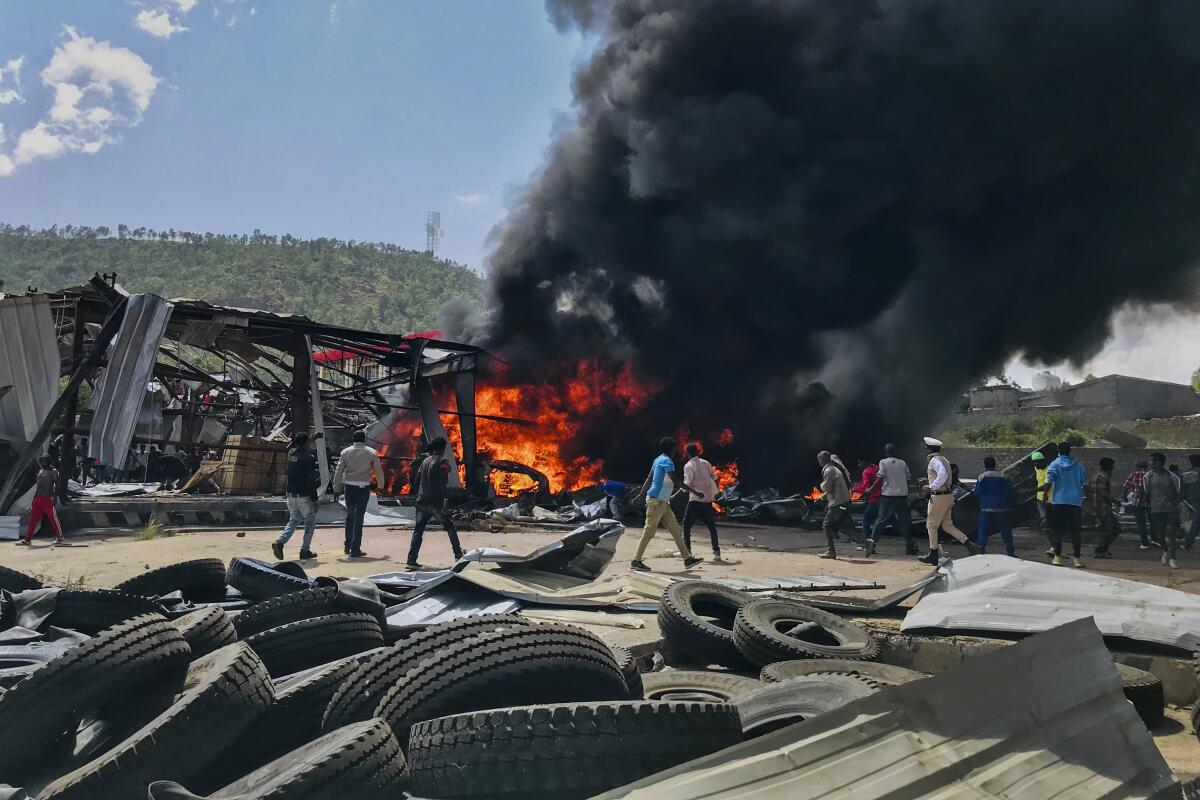
NAIROBI, Kenya — New airstrikes hit the capital of Ethiopia’s Tigray region and another community on Wednesday, as video from Mekele showed injured people with bloodied faces being rushed to vehicles and thick black smoke rising in the sky. Ethiopia’s government said it targeted facilities to make and repair weapons, which a spokesman for the rival Tigray forces denied.
Meanwhile, the United Nations told the Associated Press it is slashing by more than half its Tigray presence as an Ethiopian government blockade halts humanitarian aid efforts and people die from lack of food.
The war in Africa’s second-most populous country has ground on for nearly a year between Ethiopian and allied forces and the Tigray ones who long dominated the national government before a falling-out with Prime Minister Abiy Ahmed, the 2019 Nobel Peace Prize winner.
At least 14 people were injured in the airstrikes in Mekele and three were in critical condition, Hayelom Kebede, the former director of Tigray’s flagship Ayder Referral Hospital, told the AP.
“Indeed there have been airstrikes in Mekele today,” Ethiopian government spokesman Legesse Tulu told the AP, saying they targeted facilities at the Mesfin Industrial Engineering site that Tigray forces use to make and repair heavy weapons. Legesse said the airstrikes had “no intended harm to civilians.”
Another airstrike hours later hit Agbe between the communities of Hagere Selam and Tembien, he said, describing the site as a “center of military training and heavy artillery depot.”
In parts of Ethiopia’s Tigray region, people now eat only green leaves for days. The United Nations calls it the world’s worst hunger crisis in a decade.
A Tigray spokesman denied the Mekele site was related to weapons. “Not at all,” Kindeya Gebrehiwot told the AP, calling it a garage “with many old tires. That is why it is still blazing.”
Amit Abrha, who said she was a worker at the site, said she didn’t hear the airstrike coming and collapsed when the attack occurred. “People picked me up. And when the explosions continued, I went out and saw a person that I know injured and on the ground,” she said in video footage obtained by the AP, as the smoke billowed behind her and fellow residents tried to control the flames.
The attack came two days after Ethiopia’s air force confirmed airstrikes in Mekele that a witness said killed three children. The air force said communications towers and equipment were attacked. Mekele hadn’t seen fighting since June, when Tigray forces retook much of the region in a dramatic turn in the war.
The airstrikes have caused fresh panic in a city under siege, where doctors and others have described running out of medicines and other basic needs.
Despite pleas from the U.N. and others to allow basic services and humanitarian aid to Tigray’s 6 million people, Ethiopia’s government this week called those expectations “absurd” while the Tigray forces now fight in the neighboring regions of Amhara and Afar. Hundreds of thousands of people have been displaced there, widening the deadly crisis.
War broke out in northern Ethiopia’s Tigray region at the worst possible time for Abraha Kinfe Gebremariam and his family.
“Although not all movements have yet taken place, there will probably be a reduction from nearly 530 to around 220 U.N. staff on the ground in Tigray,” U.N. humanitarian spokesman Saviano Abreu told the AP. The decision is “directly linked to the operation constraints we have been faced with over the last months” along with the volatile security situation, he said.
The lack of fuel and cash because of the government’s blockade on Tigray “has made it extremely challenging for humanitarians to sustain life-saving activities” at the time they’re needed most, Abreu added.
Some 1,200 humanitarian workers, including the reduced U.N. presence, will remain in Tigray, he said.
The AP in recent weeks has confirmed the first starvation deaths in Tigray under the government blockade.
Humanitarian workers are also trying to reach the displaced and often hungry people in the Amhara and Afar regions, where communications blackouts and active fighting challenge efforts to confirm claims by the warring sides. Witnesses have told the AP that some Tigray forces are killing civilians, the latest abuses in a war marked by gang rapes, mass expulsions and widespread detentions of ethnic Tigrayans.
This week’s airstrikes in the Tigray capital “appear to be part of efforts to weaken Tigray’s armed resistance, which has recently made further gains in the eastern Amhara region, with fighting ongoing in some areas. Along with superior manpower, control of the skies is one of the few remaining areas of military advantage for the federal government,” International Crisis Group analyst William Davison said in a statement. “The bombing of urban areas, however, reinforces the impression that Addis Ababa is willing to risk civilian lives in Tigray as part of its military efforts.”
More to Read
Sign up for Essential California
The most important California stories and recommendations in your inbox every morning.
You may occasionally receive promotional content from the Los Angeles Times.
